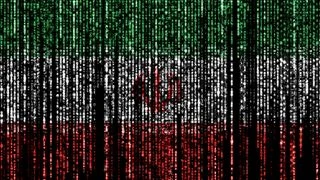Iran’s Internet Price Rises, and So Does the Fear of Greater Censorship
The cost of internet in Iran is set to rise by up to 34% in 2024, as government-approved tariff increases begin to take effect. This development has raised concerns among Iranians and international observers alike.
The Impact of Rising Internet Prices
The hike in Internet tariffs may have significant ramifications for Iranians, particularly in light of the already pervasive online censorship practices in the country. Critics fear that the higher costs could exacerbate the existing issues related to online censorship and accessibility to digital services.
Challenges with Online Censorship
The Iranian government has a long-standing history of attempting to control the flow of information available to its citizens, especially during periods of civil unrest. This has led to a surge in the use of virtual private network (VPN) services as a means to bypass these restrictions.
The Role of VPN Services
VPN services have become increasingly vital for Iranians seeking unfettered access to the open Internet. These services enable users to circumvent government-imposed restrictions and access blocked websites and social media platforms.
Government’s Control Over Internet Access
The Iranian authorities have consistently employed tactics such as Internet throttling, periodic shutdowns, and restrictions on popular social media platforms to silence dissent and control the flow of information. These measures have intensified during times of political upheaval and protests.
Concerns Over Internet Affordability
Lina Survila, a spokesperson for a prominent VPN provider, highlighted the critical role of affordable and reliable Internet in fostering social connections and access to essential information, especially during periods of political unrest.
The increase in Internet tariffs is likely to exacerbate the affordability issues already prevalent in lower-income countries, including Iran, according to Surfshark’s Internet divide study.
Iran’s Internet Infrastructure and Future Plans
In addition to rising internet prices and censorship concerns, Iran’s internet infrastructure has been described as one of the worst globally. The government’s aspirations to create a national internet, akin to china‘s Great Firewall, have also raised alarms.
Political and Economic Ramifications
The former Communications Minister, Mohammad-Javad Azari-Jahromi, expressed apprehension over the widening political gap between the people and the government resulting from the Internet price hike.
The economic interests of satellite Internet providers are expected to be secured, potentially contributing to a further divide and disenfranchisement within the population.
Conclusion
In summary, the impending surge in Internet tariffs in Iran has prompted fears of increased censorship, restricted access to information, and heightened economic disparities. It is crucial for international observers and stakeholders to closely monitor the situation and advocate for the preservation of open and affordable Internet access in the country.
Source: techradar








No Comments